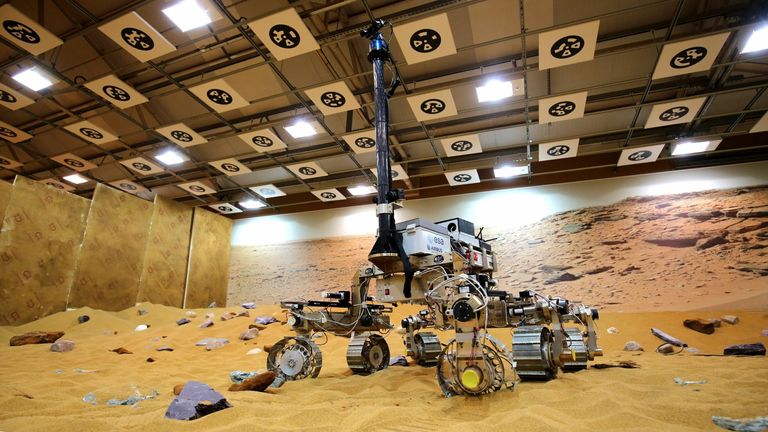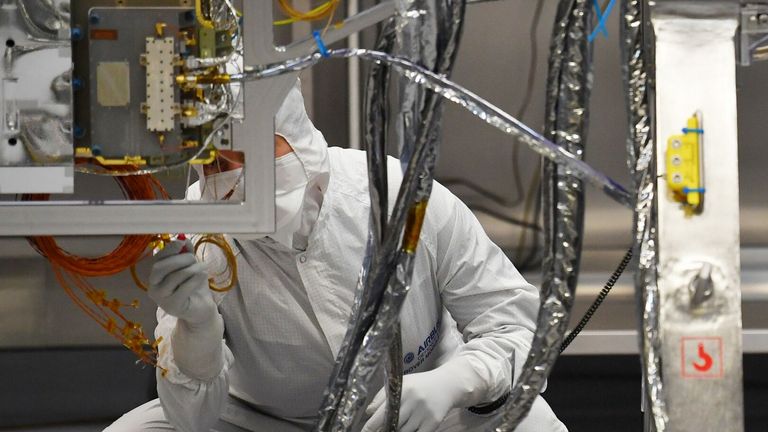Rosalind Franklin rover: Mars mission on track after successful parachute test
A UK rover is a step closer to landing on Mars after a successful round of testing on a new parachute system.
The two-stage canopy sequence will help slow the Rosalind Franklin rover from 1,000mph as it hurtles towards the red planet.
It is a joint European-Russian project, and the rover was built in Stevenage by Airbus. It is due to launch in 2022.
The mission will try to detect evidence of life – past or present – on one of Earth’s nearest neighbours.
The parachute trial had been delayed since March due to the coronavirus pandemic, wildfires and other factors, and was the first full-scale high altitude test.
It follows two unsuccessful experiments last year.
Once the module – previously known as the ExoMars rover – gets close to its destination, it will enter a six-minute landing sequence.
Drag from the atmosphere will slow it from 13,000mph to 1,000mph.
The first parachute will then be deployed, followed 20 seconds later by the second one.
When it gets around 0.6 miles above the surface, an engine will start to slow the descent even further to allow for a safe touchdown.
Sue Horne, head of space exploration at the UK Space Agency, said: “Mars has been an object of our fascination and speculation for all recorded history, but we know that missions to the red planet are no easy ride.
“A total of 20 probes, from countries and agencies around the world, have all had their share of crashing on their way to the red planet.
“They’ve crashed on take-off, crashed on landing, conked out of power.
“Parachute tests are vital in helping us get the technology exactly right and make sure that the Rosalind Franklin rover makes its trip with the best, most reliable equipment possible.”
Due to the thinner nature of the Mars atmosphere, the parachute testing can only take place high above Earth.
The most recent test on 9 November saw a vehicle dropped from 18 miles over Oregon in the US. It was lifted using an atmospheric balloon.
The test went as expected, with the capsule landing safely and the parachutes recovered.
There was some damage to the canopies, which occurred when they opened.
Programme team leader Francois Spoto said: “Landing on Mars is extremely difficult, with no room for error.
“The latest test was a good step forward but is not yet the perfect outcome we are seeking.
“Therefore, we will use the extensive test data we have acquired to refine our approach, plan further tests and keep on track for our launch in September 2022.”
Source: Read Full Article




